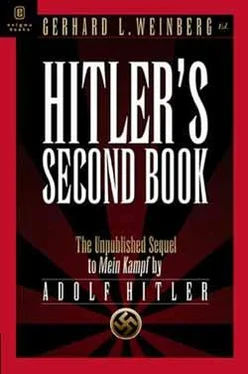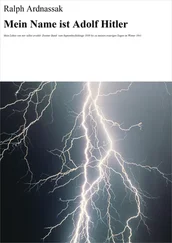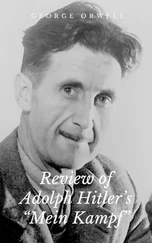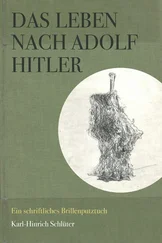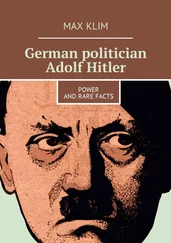By the concept foreign policy it understands the safeguarding of this development through the preservation of freedom and the creation of the most necessary prerequisites for life.
Thus, in terms of foreign policy, the National Socialist Movement is distinguished from previous bourgeois parties by, for example, the following: The foreign policy of the national bourgeois world has in truth always been only a border policy; as against that, the policy of the National Socialist Movement will always be a territorial one. In its boldest plans, for example, the German bourgeoisie will aspire to the unification of the German nation, but in reality it will finish with a botched up regulation of the borders.
The National Socialist Movement, on the contrary, will always let its foreign policy be determined by the necessity to secure the space necessary to the life of our Folk. It knows no Germanising or Teutonising, as in the case of the national bourgeoisie, but only the spread of its own Folk. It will never see in the subjugated, so called Germanised, Czechs or Poles a national, let alone Folkish, strengthening, but only the racial weakening of our Folk. For its national conception is not determined by earlier patriotic ideas of government, but rather by Folkish, racial insights. Thus the point of departure of its thinking is wholly different from that of the bourgeois world. Hence much of what seems to the national bourgeoisie like the political success of the past and present, is for us either a failure or the cause of a later misfortune. And much that we regard as self evident seems incomprehensible or even monstrous to the German bourgeoisie. Nevertheless a part of German youth, especially from bourgeois circles, will be able to understand me. Neither I nor the National Socialist Movement figure to find any support whatsoever in the circles of the political national bourgeoisie, active at present, but we certainly know that at least a part of the youth will find its way into our ranks.
For them.
Chapter 6
GERMAN NEEDS AND AIMS
The question of a nation’s foreign policy is determined by factors which lie partly within a nation, and partly given by the environment. In general the internal factors are the basis for the necessity of a definite foreign policy as well as for the amount of strength required for its execution. Folks living on an impossible soil surface fundamentally will tend to enlarge their territory, consequently their living space, at least as long as they are under healthy leadership. This process, originally grounded only in the concern over sustenance, appeared so beneficent in its felicitous solution that it gradually attained the fame of success. This means that the enlargement of space, at first grounded in pure expediencies, became in the course of mankind’s development a heroic deed, which then also took place even when the original preconditions or inducements were lacking.
Later, the attempt to adapt the living space to increased population turned into unmotivated wars of conquest, which in their very lack of motivation contained the germ of the subsequent reaction. Pacifism is the answer to it. Pacifism has existed in the world ever since there have been wars whose meaning no longer lay in the conquest of territory for a Folk’s sustenance. Since then it has been war’s eternal companion. It will again disappear as soon as war ceases to be an instrument of booty hungry or power hungry individuals or nations, and as soon as it again becomes the ultimate weapon with which a Folk fights for is daily bread.
Even in the future the enlargement of a Folk’s living space for the winning of bread will require staking the whole strength of the Folk. If the task of domestic policy is to prepare this commitment of the Folk’s strength, the task of a foreign policy is to wield this strength in such a manner that the highest possible success seems assured. This, of course, is not conditioned only by the strength of the Folk, ready for action at any given time, but also by the power of the resistances. The disproportion in strength between Folks struggling with one another for land leads repeatedly to the attempt, by way of alliances, either to emerge as conquerors themselves or to put up resistance to the overpowerful conqueror.
This is the beginning of the policy of alliances.
After the victorious war of 1870-1871, the German Folk achieved a position of infinite esteem in Europe.
Thanks to the success of Bismarckian statesmanship and Prussian German military accomplishments, a great number of German States, which heretofore had been only loosely linked, and which, indeed, had not seldom in history faced each other as enemies, were brought together in one Reich. A province of the old German Reich, lost 170 years before, permanently annexed at that time by France after a brief predatory war, came back to the mother country. Numerically thereby the greatest part of the German nation, at least in Europe, was amalgamated in a unitary State structure. It was cause for concern that ultimately this State structure included ……… million Poles and ……… Alsatians and Lorrainers become Frenchmen. This did not correspond either with the idea of a National or of a Folkish State. The national State of bourgeois conception must at least secure the unity of the State language, indeed down to the last school and the last street sign. Further it must include the German idea in the education and life of these Folk and make them the bearers of this idea.
There have been weak attempts at this; perhaps it was never seriously wanted and in practice the opposite has been achieved
The Folkish State, conversely, must under no conditions annex Poles with the intention of wanting to make Germans out of them some day. On the contrary, it must muster the determination either to seal off these alien racial elements, so that the blood of its own Folk will not be corrupted again, or it must without further ado remove them and hand over the vacated territory to its own National Comrades.
That the bourgeois national State was not capable of such a deed is obvious. Neither had anyone ever thought about it, nor would anyone ever have done such a thing. But even if there had been a will to do this, there would not have been sufficient strength to carry it out, less because of the repercussions in the rest of the world than because of the complete lack of understanding that such an action would have found in the ranks of the so called national bourgeoisie. The bourgeois world had once presumed it could overthrow the feudal world, whereas in reality it continued the latter’s mistakes through bourgeois grocers, lawyers, and journalists. It has never possessed an idea of its own, but indeed a measureless conceit and money.
But a world cannot be conquered with this alone, nor another one built. Hence the period of bourgeois rule in world history will be as brief as it is indecently contemptible.
Thus, right from its foundation, the German Reich had also assimilated toxins into the new State structure whose deleterious effect could all the less be evaded as bourgeois equality, to top things off, gave Jews the possibility of using them as their surest shock troops.
Aside from that, the Reich nevertheless encompassed only a part of the German Nation, even though the largest.
It would have been self evident that even if the new State had not possessed any great foreign policy aim of a Folkish character, at least as a so called bourgeois national State it should have kept in view further unification and consolidation of the German Nation, as its minimum foreign policy aim. This was something that the bourgeois national Italian State never forgot.
Thus the German Folk had obtained a National State which in reality did not completely encompass the Nation.
Читать дальше
